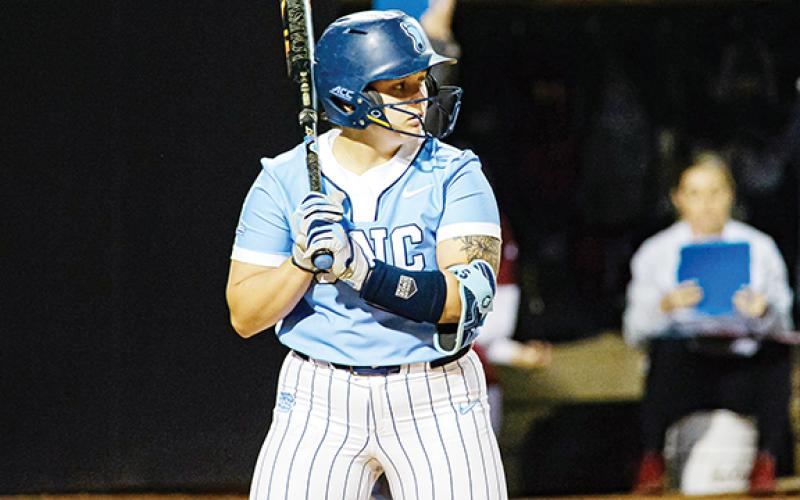Greenville – Murphy alumna Annie Kate Dalton and current East Carolina University junior Annie Kate Dalton said the Division I athlete experience has been “like a roller coaster.”
It hasn’t always been easy. After graduating from Murphy, Dalton played the first two years of her college softball career at the University of North Carolina, but took time away from the sport in March. She decided she wasn’t ready to hang up her cleats, and transferred to East Carolina with two years of eligibility still remaining.
“There are a lot of things behind the scenes I’m still not comfortable talking about,” Dalton said. “But a lot of that was a driving factor of finding a place where I was going to be happy and be myself on the field and give me the best opportunity to finish off my career.”
Dalton committed to the Tar Heels when she was 14 years old, making her Division I softball dreams a reality. Right after she committed, the recruiting rules changed so coaches could not contact a player until Sept. 1 of their junior year, which means Dalton didn’t hear from her future coaches for the next two years.
Though she transitioned from being a bench player her freshman year to North Carolina’s starting catcher her sophomore year, things were not going great off the field. Softball was starting to become her whole identity. The Division I athlete life is a grind, with Dalton committing at least 20 hours a week to the sport. She said she started to dream about the sport, and not in a good way.
Dalton never saw herself as somebody who would step away, but eventually saw that as the only option. When she started having mental health issues, she didn’t feel like the coaching staff made it a priority.
It wasn’t until she talked to her athletic trainer about what she was going through that she was referred to a sports psychologist. Stopping wasn’t a spur of the moment decision, instead one she came to after a lot of prayer. It was something, she said, that just felt right at the moment.
“It was something I needed to do for myself because I needed to get myself together as a person, not just a softball player,” Dalton said. “Because at the end of the day, I’m always going to be a softball player, but when I’m not myself that’s what’s important.”
After leaving the team, Dalton said she took time to heal. The goal was to figure out who she was outside of softball. She made her therapy appointments a priority, and had a lot of conversations with her parents and God about what would be next. Dalton also graduated from the university in May, earning a degree in exercise and sports science.
During this time, she also decided she wasn’t ready to end her softball career. After two weeks, she went back to working out with her old strength coach.
Once the Tar Heels’ season ended, she put her name in the transfer portal. The goal was not just to find someone who valued her as a player, but as a person too.
Dalton kept the schools who contacted her private, but said she received some interest from schools in Power 5 conferences. She said East Carolina head coach Shane Winkler stood out in phone calls, and was willing to take time to understand her decision to take time off from the sport. It’s something any coach would have questions about, but Dalton felt he really tried to understand why she did what she did.
With Dalton committing late in the summer, she didn’t get a chance to talk to some of her future teammates before making a decision. There were some other nerves because she didn’t know if the coaching staff was going to be the same on the phone as they were in person, but those nerves were quickly brushed aside.
“Right when I got here, my team opened their arms to me,” Dalton said. “And I have a roommate who’s a transfer and she feels the same way. She’s great. My coaches, they’re awesome, they’re laid back, they understand the grind. But they also keep us first as a priority before softball, and that’s something I’ve been looking for.”
While finishing her softball career, Dalton is getting her master’s degree in kinesiology with a concentration in physical education. She recently decided she wants to be a college softball coach when her playing career is over. Given her journey as a college softball player, she wants to provide an example that it’s OK to go through what she went through and make it a priority.
“From past experiences, a lot of coaches don’t make it a priority,” Dalton said. “Some may say they make it a priority but they don’t make it a priority. They don’t make it comfortable enough for athletes to come to them and say, hey, I struggle with this and, in turn, it’s going to affect what happens on the field or how they view them on the field.”

